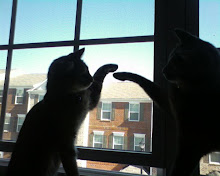This week’s classroom instruction introduced ‘Generating and Testing Hypotheses.’ When students generate and test hypotheses they go through a complex mental process by applying content knowledge to enhance understanding (Pitler, Hubbell, Kuhn, & Malenoski, 2007, p.202). Dr. Orey describes that constructivism learning theory is accomplished when learners meet a disequilibration and use assimilation or accommodation to form a balance between prior knowledge and newly acquired knowledge (Laureate, 2009). The instruction Generating and Testing Hypotheses meets the expectation of constructivisim learning theory because when learners generated a hypothesis they use assimilation to fit the new knowledge that they were briefly exposed to, to fit their prior experience. When testing this hypotheses, they both confirm and concrete their knowledge that the assimilated or use accommodations to alter or create new schema to make sense with the new knowledge.
Technology such as Spreadsheets Software, Data Collection Tools, and Web Resources enhances the instruction of generating and testing hypotheses by ‘allowing students to spend more time interpreting the data rather than gathering the data (Pitler, Hubbell, Kuhn, & Malenoski, 2007, p.203).’ The authors also say that generating and testing hypotheses can be applicable to all content areas. Yet, they only showed examples of using this instructional strategy in science and math, which seem like the obvious choice.
I want to trust the authors claim that generating and testing hypotheses can be used in all content area. Therefore, I briefly thought of a lesson where this instruction can be used in Literacy. Wondrous Words by Katie Wood Ray (1999) suggests teaching students writing techniques by teaching them to analyze current books and borrow writing techniques from other authors. Let’s say that I am conducting a lesson about adjectives and adverbs. Students will build a hypothesis about how adjectives and adverbs affect the quality of a story. They can first find a short story book that contains many adjectives and adverbs. Then, they can collect data about how many adverbs and adjectives were used in the book. Afterward, they can re-write the story by taking out all the adverbs and adjectives that were in the book. Then, finally, take a pole on which story does the class prefers. Similarly, students can write a story then edit in adjectives and adverbs. Afterwards, take a pole on rather readers enjoy the previous story or the edited story. Would this scenario applying generating and testing hypotheses in literacy correctly? If not what has to be done to be applying the instruction effectively.
Laureate Education, Inc. (Producer). (2009). Constructionist and Constructivist Learning Theories [Motion Picture]. Bridging Learning Theory, Instruction, and Technology. Baltimore: Author.
Pitler, H., Hubbell, E., Kuhn, M., & Malenoski, K. (2007). Using technology with classroom instruction that works. Alexandria, VA: ASCD.
Woodray, K. (1999) Wondrous Words, Ntational Council of Teachers of English, United States.
Wednesday, July 21, 2010
Subscribe to:
Post Comments (Atom)

Hello Jennifer~
ReplyDeleteWow! First great post..I felt I was able to gain a deeper understanding of the information presented this week. I think the lesson you explained does display the process of students generating hypotheses. The act of students explaining and discussing their predictions is a powerful tool in order to go through the process of discovering and learning the informations outcome. I think applying this thought to literacy is great. Thank you for your ideas!
Jennifer,
ReplyDeleteYou did a great job with this week's post! :-) I really like the literacy idea you wrote about. I am going to modify that for my first year Spanish students.
Thanks,
Sherry
Mrs. B & Sherry,
ReplyDeleteThank you for your comments. I teach pre-k so I wouldn't be able to apply this lesson. If you have a chance would you let me know how the students reacted? and if it was effective?
Jennifer Pak